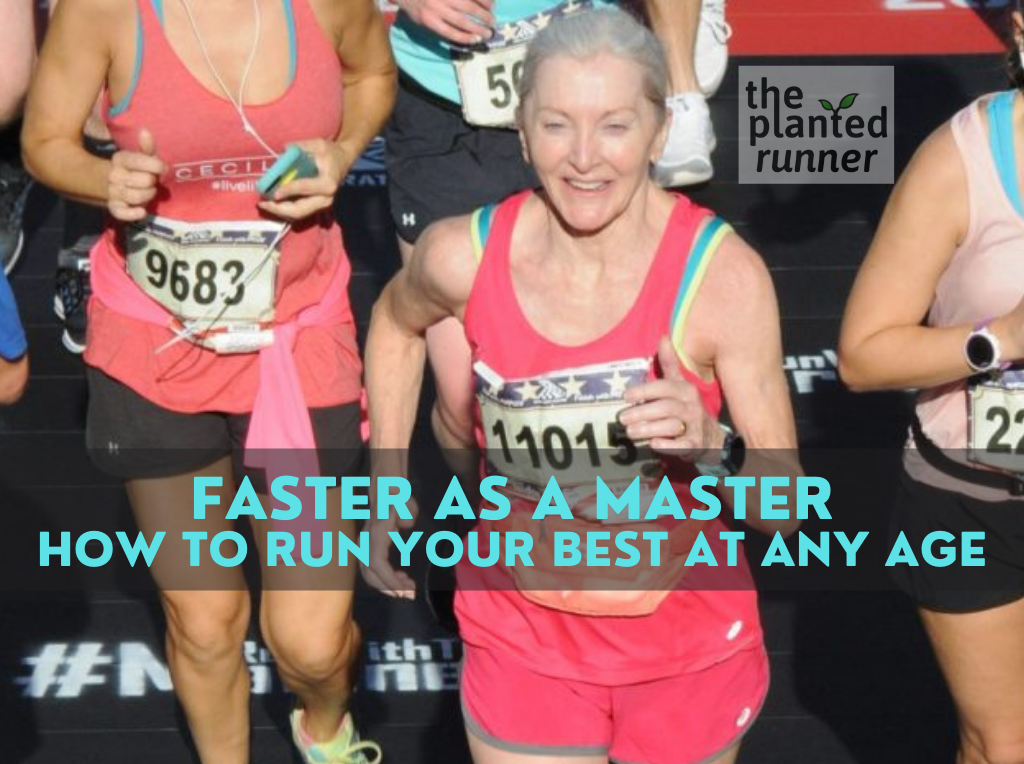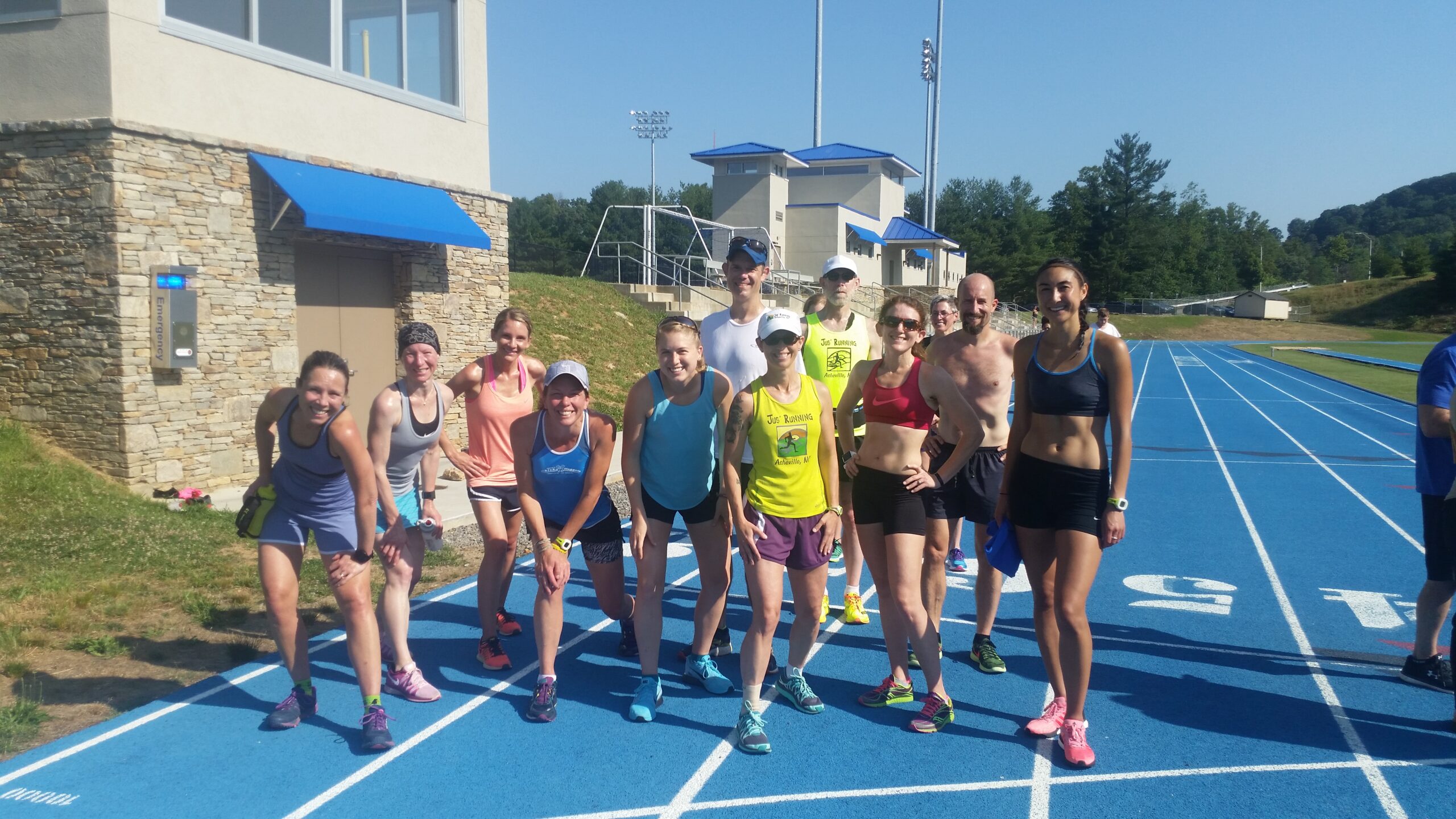Yes, you can run faster in your 40s, 50s, 60s, and beyond! Learn how to get faster as a master!
If you think that slowing down as you age is inevitable, you’re right.
On the other hand, if you think that you actually can get faster despite your age, you’re right, too! Armed with some knowledge of proper training and paying attention to your body, you truly can get faster as a master.

The Signs of Aging and How to Counteract Them
I’m not going to lie to you, the shift between growth and decline actually starts happening in your 30s, if you let it. And that’s the key. Research shows that much of the age-related loss of fitness that we assume is simply because we are getting older is actually due to inactivity rather than age alone.
In other words, if the only activity you do all day is moving from your desk chair to the driver’s seat to the couch to your bed every day, you will see a far more rapid onset of all the signs of aging.
If you want to stay active for life, start being active now. If you want to get faster as a master, keep training smart.
So what are the signs of aging? Let me go over all the terrible things that begin to happen and how you can slow the process.
Heart Rate
As you age, your heart beats slower, which means that it can’t bring oxygen to your muscles quite as efficiently, leading to fatigue and heavier breathing. But the heart is a muscle and can be improved or at least the decline can be dramatically slowed through aerobic exercise like running.
Flexibility
Your tendons begin to lose their elasticity, which means your hip extension for example won’t naturally be as wide anymore. You can mitigate this with good stretching and balance work.
Muscle Mass
Your muscle mass begins to decline in your 30s IF you let it. The decline starts in the lower limbs (your legs), which is part of why we slow down as runners. The solution is weight training 2-3 times per week. Here’s my strength training guide.
Bone Density
Bone density naturally peaks at age 30 as bone loss speeds up and bone growth declines. But that isn’t a given and bones can still grow stronger in your 30s, 40s and beyond, but it becomes much more difficult to do. The physical activities you do in your thirties and forties lay the foundations for solid bone structure in your fifties and sixties, so if you are not weight training now, it’s time to start. Running itself is a weight bearing exercise, so even if you don’t strength train (but you should) you are still helping your bones every time you run.
Body Composition
As we lose muscle mass, our total energy requirement shrinks, which can lead to weight gain, even if you eat the same thing every day. Again, strength training and running will help mitigate this, but be aware of your total caloric intake as well. Here’s how to actually lose weight with running.
Recovery and Healing
Your body simply will not be quite as quick to build and repair damaged tissues after workouts and that is okay! If you take the time you need to recover, you will still build strong muscles and bones. But if you keep pushing day after day without rest or easy recovery days, you will never properly repair and grow stronger, not to mention the risk of injury and overtraining goes up. So in other words, celebrate your easy and rest days! That’s when the hard work shows up.
Don’t Train Like A 20-Something to Run Faster as a Master
If you were a highly trained runner in your teens, twenties, or even your thirties, you may have reached close to your absolute athletic potential.
But for the rest of us, we never trained to reach our peak in those years! That means with smart training, there is no reason you can’t improve in the 5, 7, or even 12 years after you begin seriously running.
If you do it right…
When you are in your 20s and 30s, running a hard day at the track on Tuesdays, a tempo on Thursdays, and long run on Saturday was no big deal. But very few runners in their 40s and beyond can handle a schedule like that successfully for very long. It simply breaks you down more instead of making you faster as a master.
So instead, push back that tempo to Friday, for example, and then push the long run back a day. Or maybe you skip that second workout a week entirely every other week or every week. Running is supposed to make you feel good, so if you are not feeling good day after day, ease up and recover.
Other essential recovery tips are to slow down those easy runs so that they are truly restorative. Easy should mean a slow jog, not your marathon pace.
Slowing down your easy runs is something EVERY runner should do, at every age, not just master’s. Here’s more on why it’s so important!
Consider Cross Training
Any low impact aerobic activity builds the biggest engine you need to run well and that’s your aerobic engine. So swim, bike, aquajog, or even walk on your recovery days.
There was a cool study done recently comparing some very fit cyclists to some very fit runners. They made the cyclists run and the runners got on the bike. The cyclists were almost as good as the runners on the runs, meaning their aerobic capacity that they built on the bike directly translated to good running, even when they were not runners. So don’t be afraid that cross training is not as good as running. It’s still building your fitness.
Real Runners Getting Faster as a Master
But don’t just take my advice on how to get faster as a master. I’d like to share some stories some of the masters athletes I’ve coached. So many of them are not slowing down, and in fact are getting stronger and faster in their 40s, 50s, even into their 70s!
- “I have never been a real runner until six years ago and it is amazing to me that I can now run faster. With discipline and good training I can do something physical better than ever before. And, while I have to remain cautious to avoid injury, there still is progress. last month I PRed 10k and 5k. Surely I have to listen much more to my body. I cannot just force things through, believing my body will able to everything I am throwing at it. But I can push my limits.” Sascha, age 58
- “I’ve learned a lot from watching some of the older (65+) runners in my athletics club. They’re very in tune with their bodies and won’t hesitate to take an extra day of rest or not run a hard workout if they have a niggle or aren’t feeling 100%. I’m also realizing that I don’t need to push so hard or do the massive amounts of training or racing I assumed I had to to be able to run marathons. I’m enjoying doing more cross training than I previously did. I want to keep active for as long as I possibly can.” Jo, age 50, who has personal records most 30 year-olds could only dream of!
- “Don’t worry about getting older, at least not yet! When you are 30 or 40, the age of 60 might sound ancient, but when you actually reach that age, you will find that you are capable of so many things, physical and otherwise (including running and racing!). But that assumes you invest in yourself along the way to 60 and beyond: eat right, stay active, stay engaged with family and friends. It’s not rocket science and you don’t need to get obsessed about the perfect diet, the perfect workout regime, etc. The 80/20 approach is a good one – stay disciplined 80% of the time but give yourself permission to wander off-trail at times. Perhaps the best part of reaching 60 is that you become much more accepting of yourself and others and a lot less inclined to stress over issues like relationships, career, ambition, and yes, running injuries, that seem so urgent when you are younger.” Ed, age 63
- “Staying active is the main strategy and adjusting your expectations is critical. The good news is that if you can keep running, you find that the ranks thin and the ability to be an age group top 3 finisher becomes more achievable.” Mike, age 76
- “My advice to younger runners as they get older – really LISTEN to YOUR body while you still get out there. I am so grateful I can, that even if I can’t do everything, I have been blessed with a strong body and decent mind and I’ll run for all those who can’t.” Fiona, age 73
These are just a few examples of real runners who are getting faster as a master. If I had to boil it all down, the keys to running well at any age are: run, strength train, recover well, and stay connected.
I know that for me, I plan to be that hot grandma who’s still rockin’ it at the gym and giving those young guns a run for their money. I hope you’ll join me.

